Lansing has $40 million to fund new city hall. What happens next?
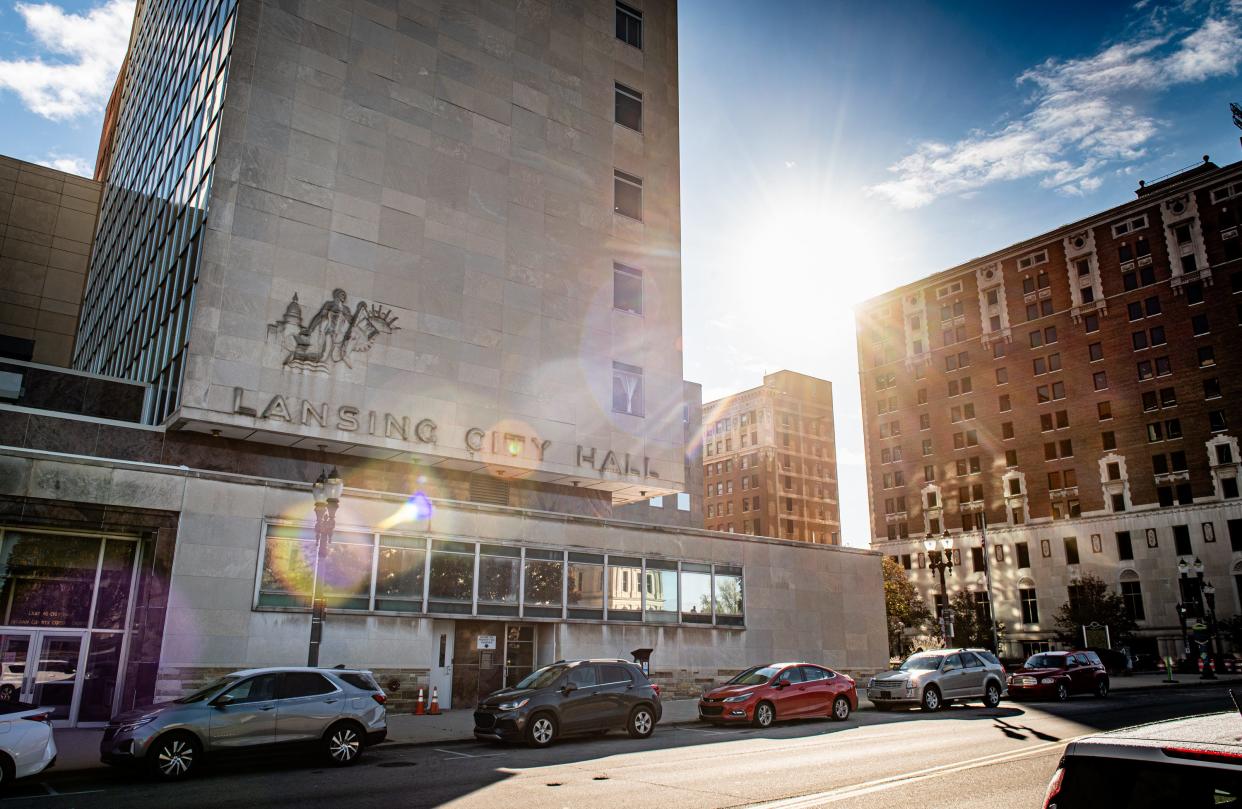
LANSING — Many people for years have eyed the corner of Michigan and Capitol avenues where City Hall stands as a piece of property with massive commercial appeal.
Now, the possibility of a hotel, restaurant or other attraction overlooking the state Capitol is a step closer to reality, thanks to $40 million in state funding that will allow the city to move on from its 1959 offices into a renovated Masonic Temple just down the street on Capitol Avenue.
While the state funding, which the Democratic-led Legislature approved in this year's budget, is expected to come sometime in December or January, plans for renovations of the new city hall site, and plans for the current location, remain uncertain with a variety of hurdles remaining.
City Hall's move could be another step in a series of major developments for the downtown, which is expecting a $200 million project with 450 housing units, including a new skyscraper, a second entertainment venue, following Grewal Hall at 224, and hundreds of other housing units under construction or opening soon within walking distance of downtown.
The City Council, the makeup of which could change significantly in Tuesday's election, would need to approve the city hall plans and accept the state funding. Council members are expected to start voting on it early next year.
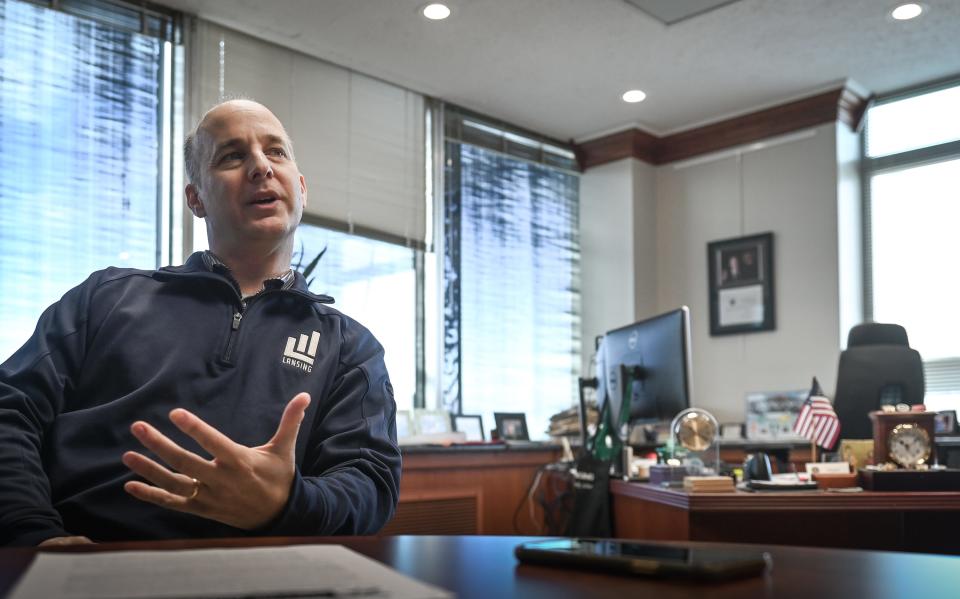
Lansing Mayor Andy Schor said he has talked to council members individually in some way about the project, but until state officials release the money, and potential conditions on the money, there isn't a formal city proposal for the move.
City Council member Brian Jackson said his constituents have never brought up the need for a new city hall to him.
"They've never said anything about that," he said.
Council member Ryan Kost said he needed more information from the city before making a decision.
The State Journal left phone or email messages for council members Adam Hussain, Jeremy Garza, Patricia Spitzley, Carol Wood, Peter Spadafore and Jeffrey Brown.
What is the new city hall proposal?
The state funding is intended to help move Lansing's city hall operations a few blocks away into a vacant former Masonic Temple, which is listed on the National Register of Historic Places. The Boji Group previously purchased the building, which had been owned by Cooley Law School, with the possibility of renovating it for residential use.
Under the current proposal, the city would buy the long-vacant building from The Boji Group with a developer doing renovations for the city after the sale. The city would pay for Lansing city employees to move just over a block south.
Most of the state funding will be used renovate the Masonic building, Schor said.
"Do I expect this is something the average citizen cares about? Probably not," he said. "They care about their street. They care about their public safety. They care about their parks. I think they care about needing to have a customer friendly city when they need to do things. This is a need of the city."
The current city hall is a few decades newer than the Masonic building, which was built in 1924 and has been on the National Register of Historic Places since 1980.
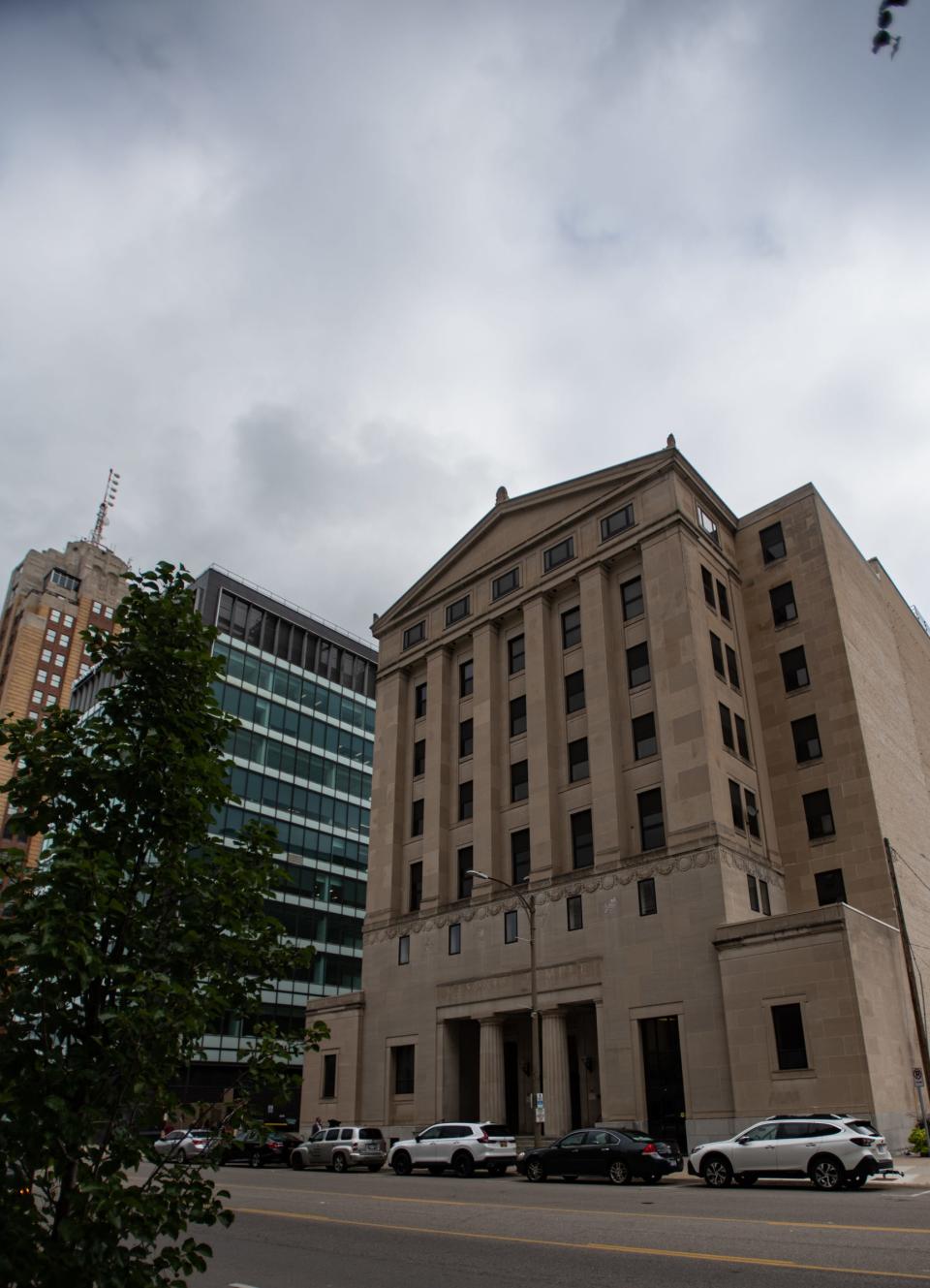
The Masonic building also is about 20,000 square feet smaller than the current city hall, but several space-intensive city departments will be relocated into a new public safety building, and that should free up plenty of space for city workers, and possibly for other needs, Schor said.
The "bones" of the century-old Masonic building are in great shape, and it was well-maintained by the Cooley Law School for about three decades before the Boji Group bought the building, CEO Ron Boji said during a September press conference with city leaders inside the building on Capitol Avenue. Boji Group representatives did not return a phone message seeking comment for this story.
What will happen to the current city hall?
Construction of the current city hall began in 1956, was completed in 1958 and dedicated in 1959, according to the Michigan Modern architecture website. It stands near the former site of Lansing's late Victorian post office/federal building. In 1959, when the new city hall was occupied, the old one was demolished.
The state funding will not be used to improve the current city hall. Schor said the building may be sold for more than $2 million to a Chicago developer that has previously worked with the city on plans for a hotel-and-restaurant facing the Capitol.
The city does not have a signed deal with the developer and those plans could change, Schor said. But past proposals by Beitler Real Estate Services from several years ago, including a video showing a possible plan for the city hall renovation, would turn building into a 180-unit hotel with underground parking, ground-floor retail and a rooftop restaurant. The firm submitted designs in 2017 and again in 2021 in response to a request for proposals from the city.
The company lists the project as "coming soon" on its website. The firm did not respond to a phone message seeking comment.
Schor said Wednesday that those plans are being "rehashed" with the city and developer Paul Beitler, but the proposal will only work if city hall is able to move.
Such a hotel development would be only the third in downtown in walking distance to the Capitol and Lansing Center, joining the Doubletree by Hilton Lansing (formerly the Radisson) and the Courtyard by Marriott.
Council members taking wait-and-see approach
In order to move ahead with the ambitious plan, five of the eight council members would have to accept the state funding and six would need to approve spending the money, since it would require an amendment to the city budget.
Jackson said he is willing to hear the final proposal from the city, and receiving funds from the state is far preferable to paying for such a plan with city dollars.
Kost said he has heard from several people who are concerned about the financing and wanted to make sure the city doesn't pay $40 million for a building that the Boji Group bought for less than $2 million a few years ago.
A key part of Schor's plan is to put most of the city's services people need — including paying taxes, getting parking permits and filing for business licenses — on the first floor of the Masonic building. Kost said he wants to know if that can be done in the current city hall, where only taxes can be paid on the first floor at this time.
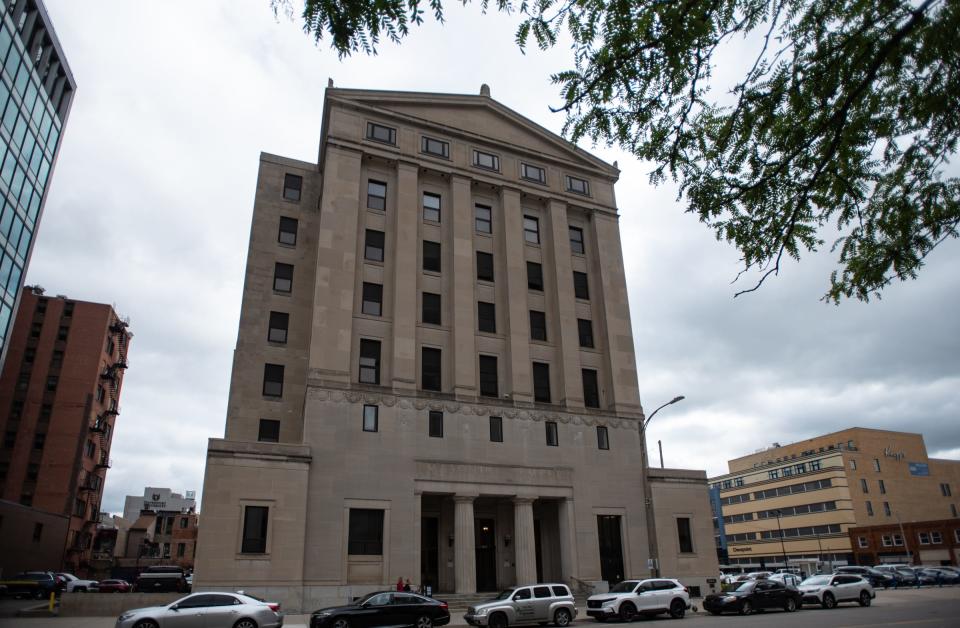
Kost said he doesn't have enough information to make a decision on whether to support the idea.
"I want to look at the cost to renovate the current city hall," Kost said, noting there is a need for serious repairs and a better-functioning city hall.
"We have carpet in the city council chambers that is duct-taped down, that's just one example how it's in disrepair," he said. Kost said the condition of the building is significantly worse because of years of neglected maintenance, and it will be important to plan for better maintenance in the future.
Schor said a previous examination by the city found it could cost more than $60 million to rehabilitate the current city hall.
He said renovating the current building would be more expensive than renovating the Masonic building and the plan would help preserve two historic structures in downtown.
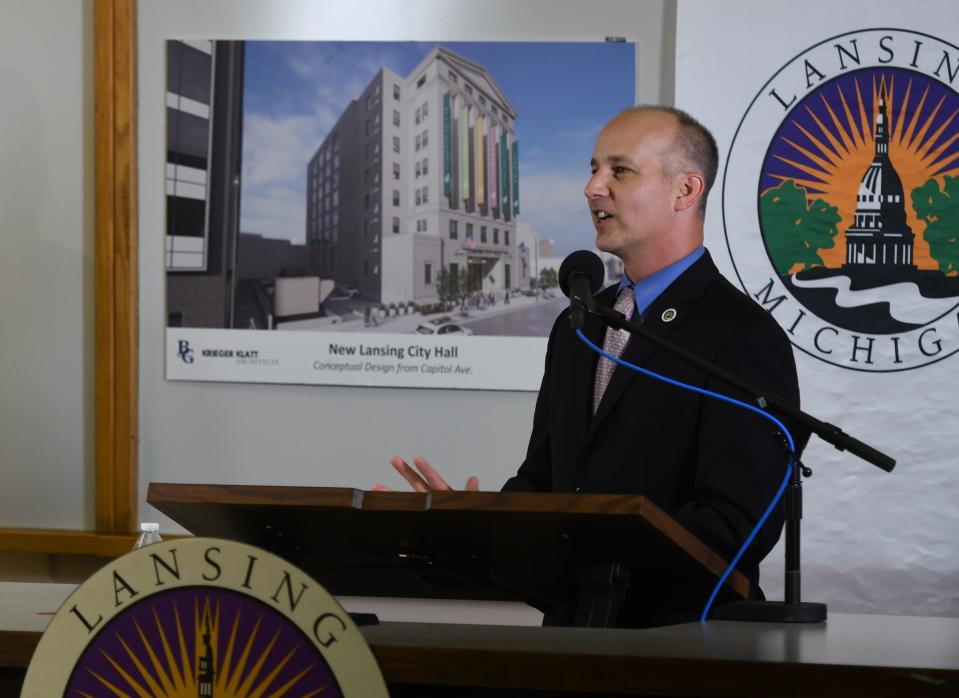
Reactions to the proposal
The plan seems workable but is funded in a way that is outrageous, according to Jeff Horner, a Wayne State University professor of urban studies and planning.
"It shocks my conscience that state money is being used to subsidize this so state legislators' parents and friends have somewhere nicer to stay in Lansing so they don't have to walk a few blocks in the cold," Horner said.
Despite his funding concerns, Horner said the plans would help to save two historic buildings, which is good for a downtown, and the Masonic Temple building could provide some benefits.
Residents likely won't notice a huge difference in going to a new building and parking in either downtown location would be a challenge, he said.
"For ease of use for most people, it's probably a wash," Horner said.
Contact Mike Ellis at mellis@lsj.com or 517-267-0415
This article originally appeared on Lansing State Journal: Lansing City Hall move opens door for new development in prime spot

